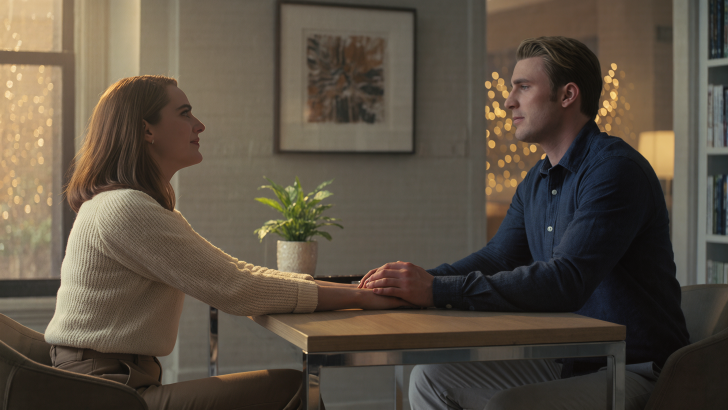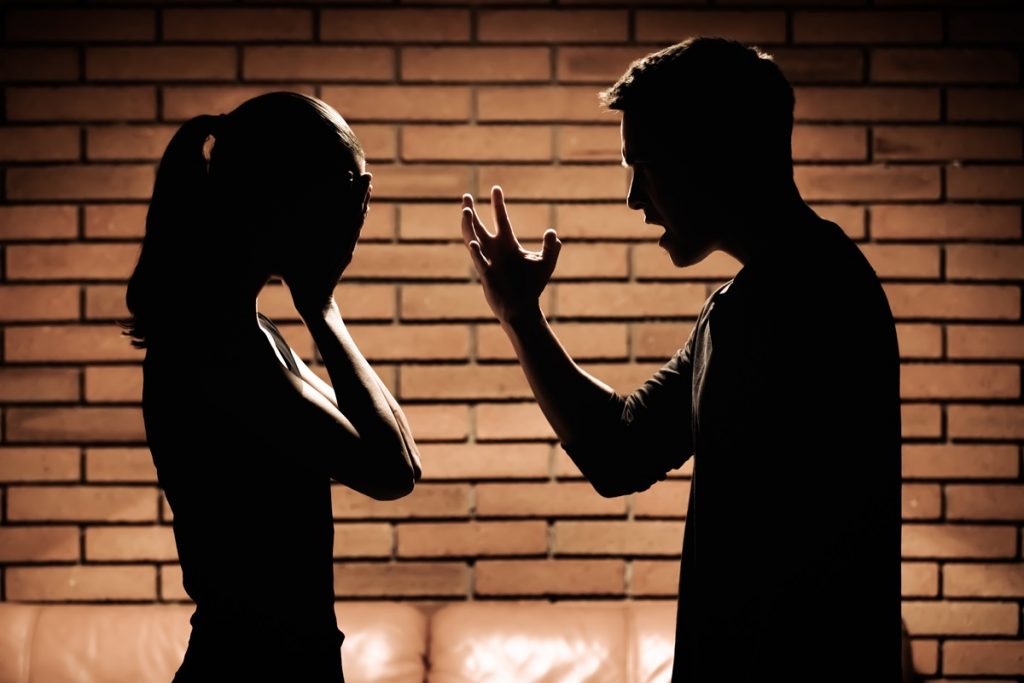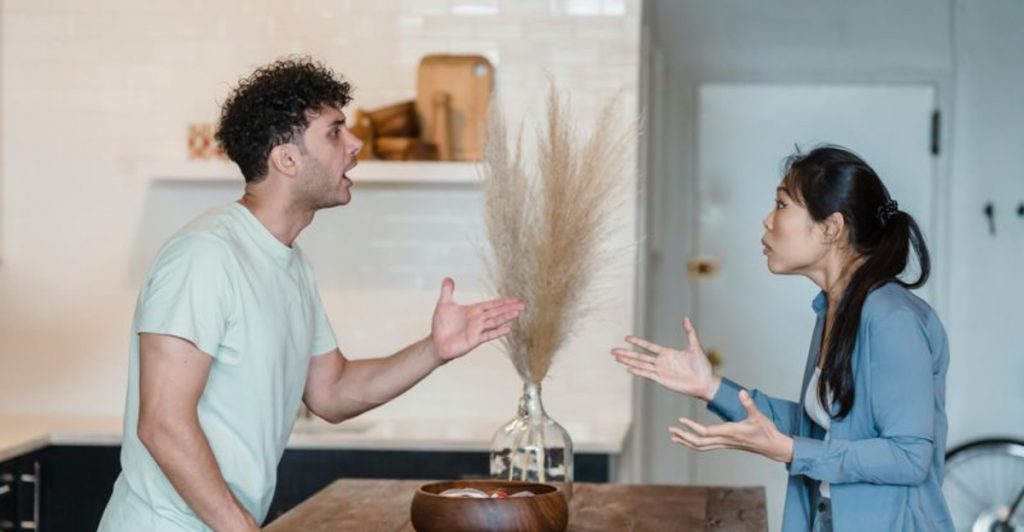Relationships change over time.
The energy of the early days eventually meets the reality of daily life. You know the deal – work pressures, parenting, financial stress, and individual growth. It adds up. Changes you.
Most couples expect challenges, but some issues become so persistent or emotionally heavy that they begin to overshadow the connection.
When frustration replaces patience or silence replaces closeness, it may be a sign that outside support could help.
If you and your partner find yourselves in one of the following situations, it might be the right moment to consider sitting down with a professional.
1. You Can’t Talk Without Fighting
Disagreements are normal, but if every conversation feels like stepping into a minefield, it’s worth paying attention to.
Frequent arguments over minor things like chores, schedules, or small habits, can reveal a deeper communication breakdown.
Over time, constant conflict creates an atmosphere where both partners anticipate hostility before they even start talking.
That expectation alone increases the chance of yet another fight.
A counselor can help you uncover why even neutral conversations take a negative turn and teach you strategies to pause, de-escalate, and redirect before the tension explodes. Inevitably.
2. One or Both of You Feel Withdrawn
Pulling back from your partner often signals something unspoken.
Sometimes withdrawal is emozionale. You stop sharing thoughts or feelings because you expect they won’t be understood.
Sometimes it’s fisico. Less touch, fewer hugs, and limited eye contact. The absence of these small gestures leaves a relationship feeling cold, even if neither person says so out loud.
Withdrawal often points to underlying hurt, disappointment, or fear of conflict.
But in counseling, couples can safely explore what drives the retreat and learn how to replace distance with gradual reconnection.
3. Resentment Has Grown Lush
Unresolved frustrations rarely fade with time. Instead, they tend to stack up, one on top of the other, until they solidify into resentment.
Maybe it’s unmet expectations, unbalanced responsibilities, or words left unsaid during past conflicts. Eventually, even positive actions may be interpreted through the lens of bitterness.
Resentment is one of the strongest signals that help is needed because it quietly erodes goodwill.
A therapist can guide couples through untangling old hurts, voicing frustrations without blame, and beginning to repair the foundation of rispetto.
4. Intimacy Feels Mechanical or Nonexistent
Physical closeness is often a mirror of emotional closeness.
When sex becomes an obligation or vanishes altogether, it usually reflects more than busy schedules.
Emotional disconnection, unresolved conflict, or unspoken needs may all be part of the picture.
Sometimes partners interpret the lack of intimacy differently. One feels rejected, the other feels pressured. Those opposing experiences can deepen the divide if left unspoken.
It’s a good sign you need a neutral space to talk openly about needs, fears, and expectations, creating room to rebuild not only physical closeness but also the sense of safety that makes intimacy possible.
5. Repetitive Arguments Linger Without Resolution
Some couples find themselves locked in the same argument for years. The topic may vary, but the dynamic feels familiar.
One person brings up a concern, and the other reacts defensively, and the conversation spirals to the same frustrating end.
The unresolved loop can create a sense of disperazione, as if the relationship is stuck on repeat. Counseling can interrupt that cycle.
With guidance, couples can identify what the argument is truly about and learn new ways to listen, compromise, and problem-solve instead of rehearsing the same conflict endlessly.
6. Major Changes Have Shifted Your World
Life transitions have a way of reshaping relationships. The arrival of a baby, a demanding new job, or the loss of a loved one can test a couple’s balance.
Sometimes the change itself isn’t the problem – it’s the way it alters routine, energia, e priorità.
If one partner feels left behind or both feel overwhelmed, the strain can quickly build.
Without support, couples may cope individually instead of leaning on each other.
You may need counseling to help you navigate new roles and responsibilities together, so you can crescere through the transition instead of letting it drive you apart.
7. You’re Not Sure You Want to Stay Together
Ambivalence about the relationship can feel paralyzing. You may wonder whether it’s better to work harder, take space, or walk away, but feel too conflicted to decide.
Partners often fear voicing this incertezza, worried it will cause more damage.
But the truth is, sitting in indecision can be just as harmful as any open conflict.
A counselor provides a structured way to explore those questions, clarifying what each of you wants, what changes are possible, and what it would take to stay together meaningfully.
Even when the path forward isn’t clear, counseling creates space to find clarity.
8. Trust Has Been Broken
Few challenges cut deeper than betrayal. Whether it’s infidelity, dishonesty about money, or hidden habits, broken trust shakes the foundation of safety in a relationship.
Without trust, every interaction can feel sospettoso o tesa.
Rebuilding doesn’t happen quickly, and it rarely happens without deliberate effort.
Counseling gives both partners a chance to express pain and remorse honestly, while also setting boundaries for healing.
You can move together from raw hurt to a structured process of rebuilding credibility, and slowly restore the sense of partnership that trust once provided.
9. External Stress Is Wearing You Down
Sometimes the tension isn’t inside the relationship – it’s all the noise all'esterno di esso.
Demanding jobs, financial pressures, caring for aging parents, or the daily chaos of parenting can drain pazienza e energia.
When stress levels rise, partners may turn against each other instead of supporting one another, creating unnecessary conflict.
If you notice that most of your disagreements stem from outside stressors, counseling can help you both recognize the true source of strain.
Together, you can build healthier coping strategies and strengthen the partnership so that stress brings you closer rather than further apart.
10. You Want to Strengthen, Not Just Survive
Counseling isn’t only for couples on the edge. Many turn to therapy when things are steady but they sense the relationship could be richer.
Maybe communication feels surface-level, or life’s routines have dulled the spark.
Some couples seek counseling simply to stay intentional, treating their relationship as something to nurture, not just maintain.
In these cases, therapy offers tools for deeper listening, more meaningful connection, and better alignment on future goals.
It’s an opportunity to reinforce strengths, address small tensions before they grow, and invest in the relationship as an ongoing choice.











